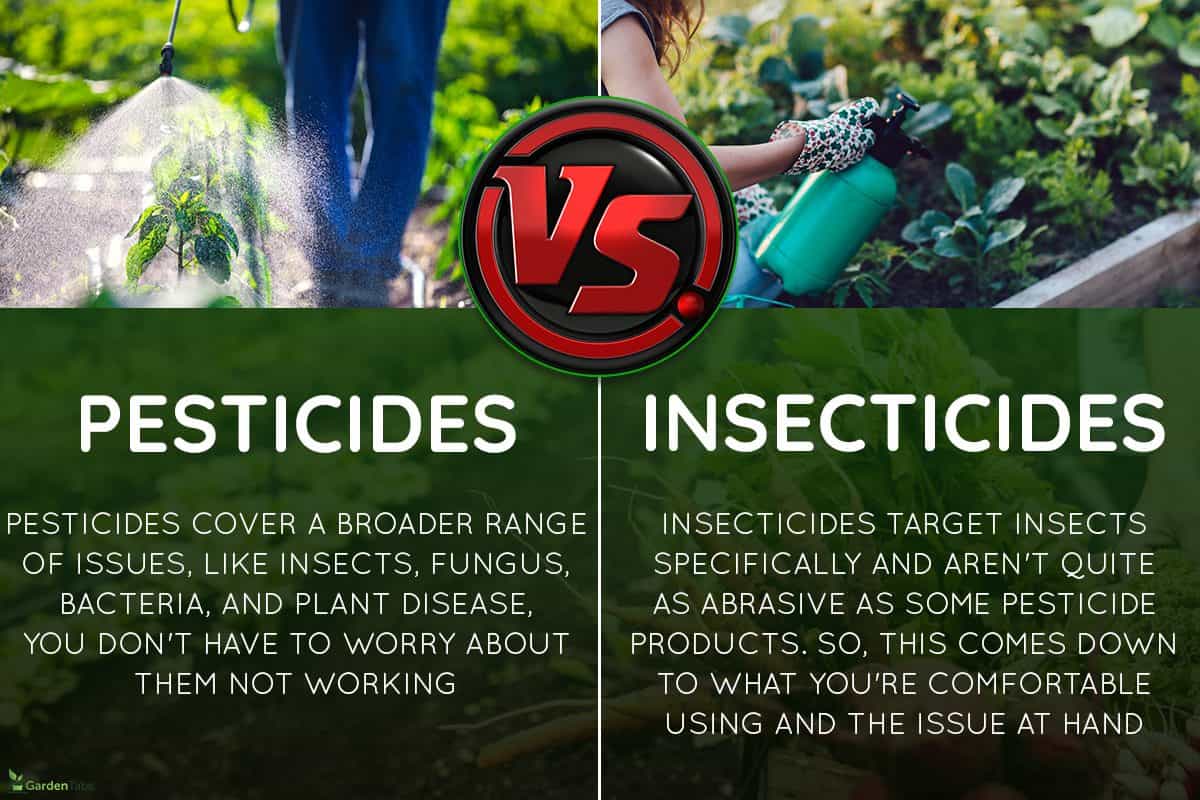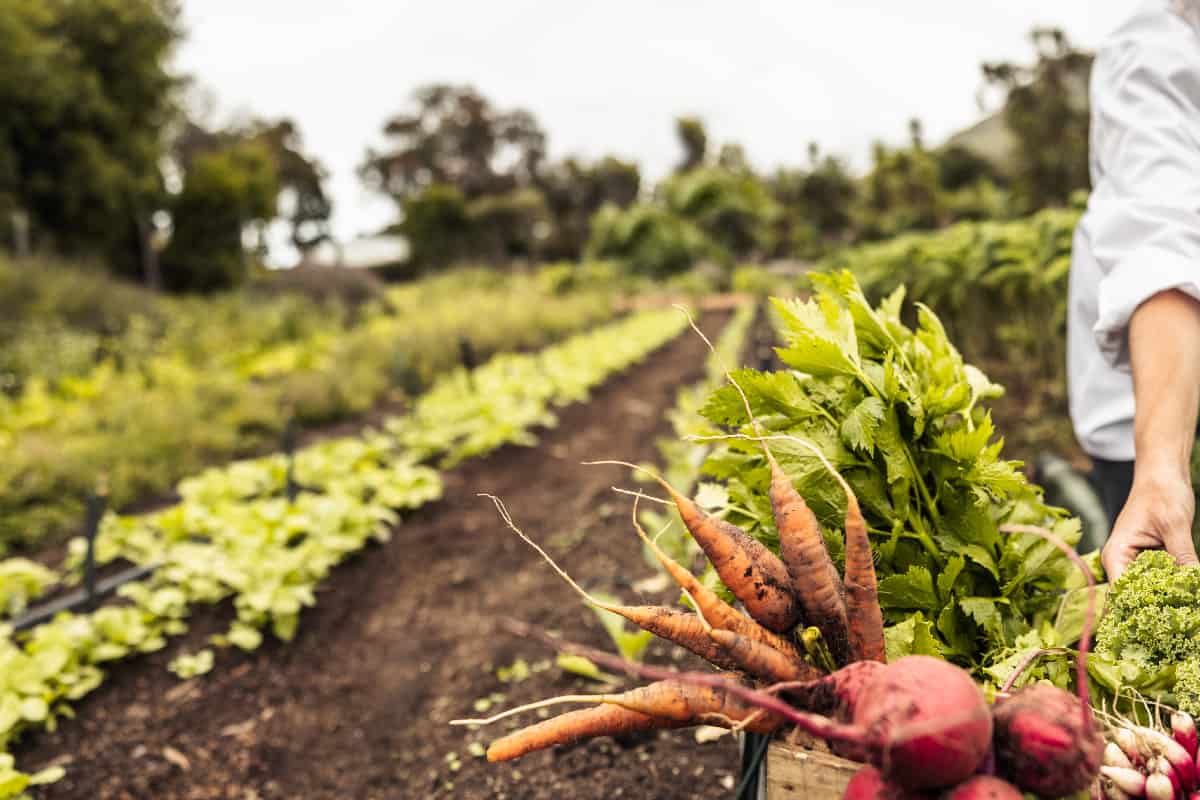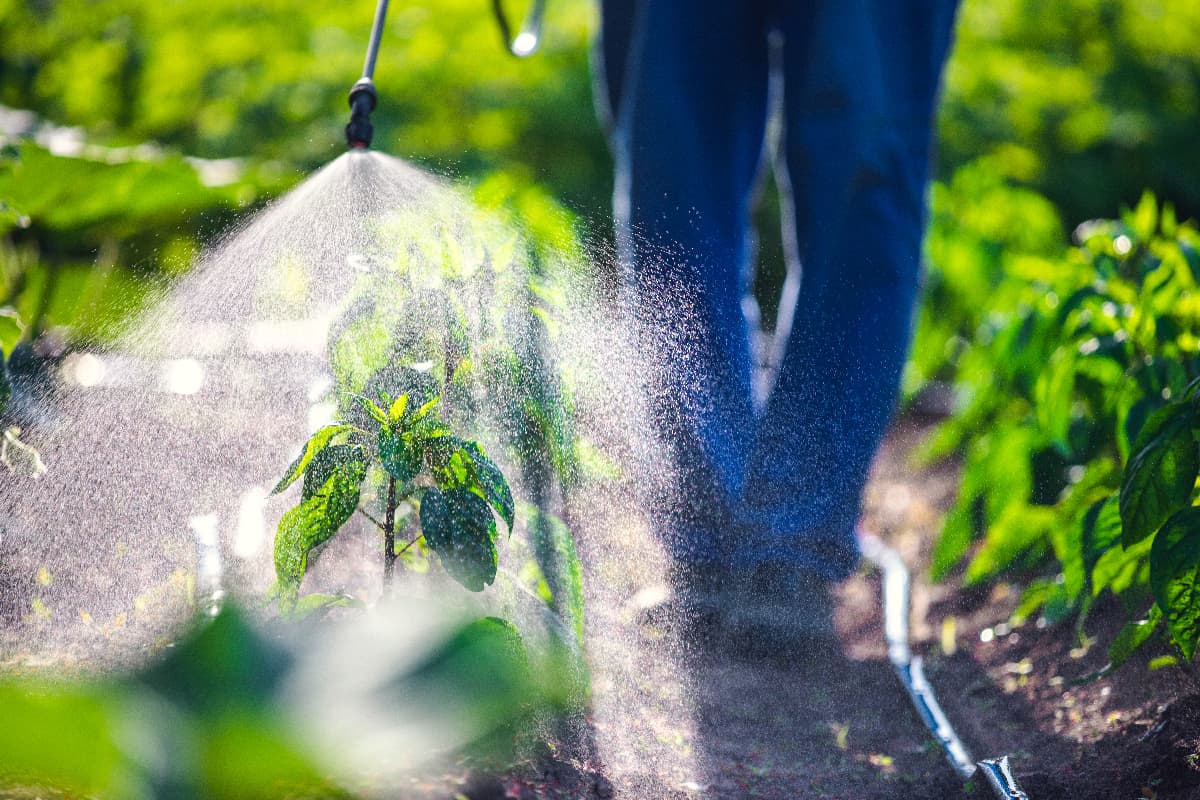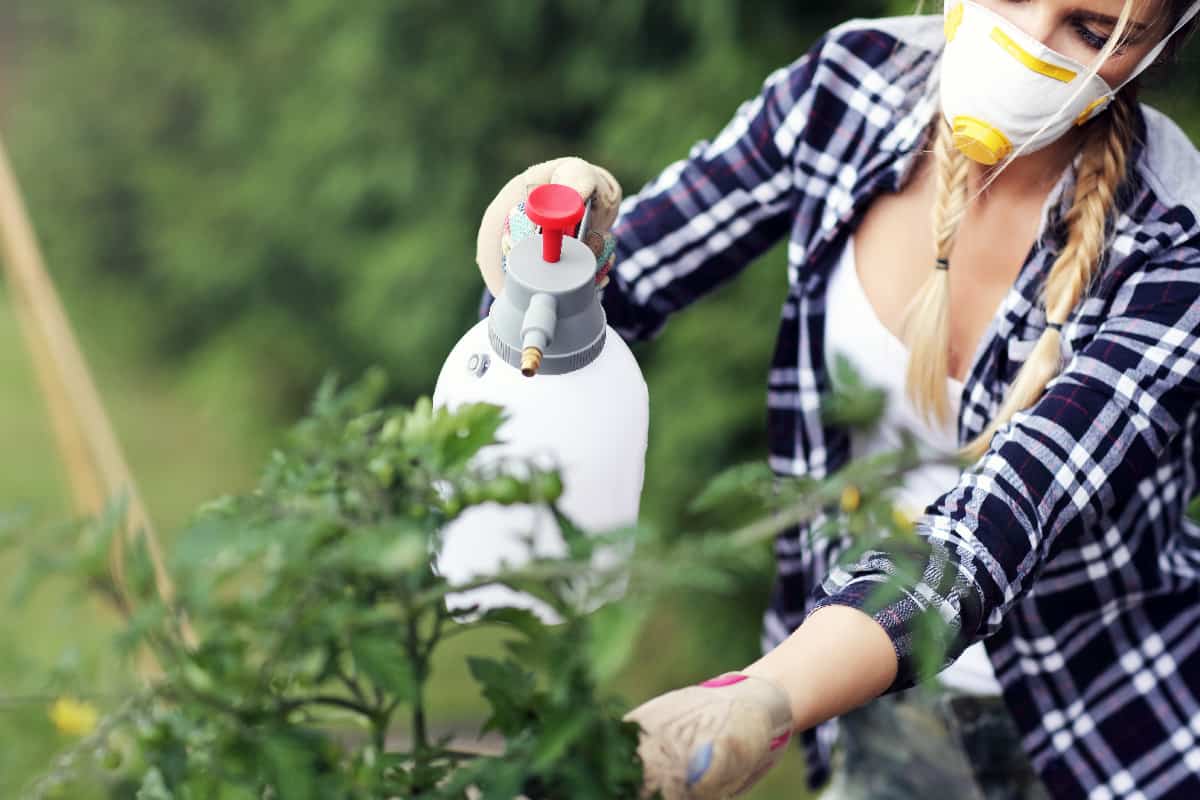Getting down to the cause of sickly-looking veggies in your garden can sometimes be confusing. Do you think it's time to apply a pesticide or insecticide to your vegetables but don't know which type of product works better? Is it safe to apply pesticides/insecticides to the food you'll eat?
Luckily, we've done some research, and here are our findings:
For those who need a remedy for their pest/disease issue, we recommend using pesticides in your vegetable garden. Since pesticides cover a broader range of issues, like insects, fungus, bacteria, and plant disease, you don't have to worry about them not working.
However, insecticides target insects specifically and aren't quite as abrasive as some pesticide products. So, this comes down to what you're comfortable using and the issue at hand.
As we start, we will cover all things insecticides and pesticides, discussing which is best for your vegetable garden. We're here to assist if you have noticed bugs crawling around your crops or even plant disease symptoms. With that said, let's dive right into this topic below!

Should I Use Pesticides Or Insecticide On My Vegetables?
If your veggie garden has become overpowered by disease or bugs, it's usually time to use a pesticide or insecticide product. However, which product's formula works the best for vegetables?

The first thing you want to determine is what the issue is in your crop garden. Do you see bite marks on your plants but no other major damage? Do all your vegetables look sick and like they're dying?
As we said above, there are stark differences between pesticides and insecticides. Most notably, pesticides cover a broader range of problems, including pests and plant diseases.
Insecticides target the bugs in your vegetable garden but can't help with disease, fungus, or bacteria. So, if you are dealing with more than just pests, you don't want to apply an insecticide.
Which Is Better: Pesticide Or Insecticide?
Since insecticides are essentially a form of pesticides, it isn't easy to compare them. Therefore, pesticides reign supreme over most garden products, as they handle the most problems.
So, if you want something that will kill all the bad things in your veggie garden, we recommend pesticide over insecticide. Remember, insecticides can't do more than target and kill insects.
Applying an insecticide only handles half the problem if your vegetables have critters and a fungal infection. However, using a pesticide should cover everything in one shot.
So from a time/effort standpoint, you want to stick with the product that addresses all your concerns and is proven effective for various plant-related issues.
Can I Spray Insecticide On My Vegetables?
Yes. As long as the insecticide has a plant-friendly formula, you can safely apply it around your vegetable crops. Typically, a targeted insecticide will do the best job of getting rid of critters in your food and shouldn't cause any devastation to their foliage or health.
For example, if you have an ant problem in your vegetable garden, we recommend finding a targeted ant insecticide to solve the problem. Using a broader coverage formula won't always be as effective.
The same goes for any bug, which insecticides will work specifically to kill and prevent.
It's only worth mentioning that insecticides are the most acutely toxic class of pesticides, meaning they won't cause harm to your food or your health.
If possible, find a natural insecticide or one that regulatory agencies approve.
Are Insecticides Good Or Bad?
Now that you know what insecticides are capable of, you need to be aware of their safety. As we said, most natural or agency-approved formulas won't harm your food or health.
However, if you use a maximum strength insecticide on vegetables, this is when problems can happen. Insecticides are the lowest-toxicity class of pesticides available, meaning they aren't as dangerous as other options.
With that said, you can still get into trouble using the wrong formula or using insecticide too often. According to Britannica, using a large number of insecticides on a plot of land can create long-term devastation to soil health.
Furthermore, the accumulation of insecticides can negatively affect humans and animals that depend on that soil, whether for agriculture or not.
So, even if the critters go away, you could be causing long-term damage to your garden and vegetables.
Is It Safe To Use Pesticides On My Vegetables?

Although we don't recommend using an excess amount of pesticide on your crops, some shouldn't affect you or your garden negatively. As we mentioned, pesticides cover a larger blanket of common garden issues.
With this strength comes a more toxic formula, regardless of brand or chemical composition. Like anything, the more convenient something is, the more side effects it likely has.
According to ChemService, nearly 30% of the crops they tested had levels of pesticide present. Although this sounds scary, most fruits/veggies we buy at the grocery store have some level of pesticide residue on it.
This leads to the question of how much pesticides are safe if we consume them. Big farming has become heavily dependent on chemicals to keep food looking good during the harvesting process, which causes concern from various health organizations.
Oklahoma State University mentions how the EPA allows for a certain level of pesticide residue on our food that does not pose a risk to humans. However, if you use too many pesticides, your vegetables are no longer safe to eat.
Can You Wash Pesticides Off Your Vegetables?
Suppose you went too far with the chemicals on your veggies and don't know what to do next. Luckily, an easy way to remove pesticide residue is to wash your food in the sink before preparing it.
Many experts recommend grabbing your vegetables or fruit and putting them under warm running water. Additionally, you want to rinse them with soap, ideally one that can kill bacteria.
On top of washing with soap and water, you can also try soaking your vegetables. One way to do this is by placing them in a solution of baking soda and water.
The baking soda and water will help eliminate the pesticide residue, which is essential if you want to prepare and eat them. It's always better to be safe than sorry.
Inside Science also reports that a tester is becoming available for pesticide levels on produce, although we haven't had official confirmation yet.
The device would light up green if your food has little pesticides (enough to eat according to the EPA) or light up red if it's unsafe to consume.
What Happens If I Consume Foods With Pesticides Or Insecticides?

If you eat foods with excess pesticides, expect to become sick. Specifically, acute poisoning symptoms will likely happen, including nausea, abdominal cramps, diarrhea, dizziness, anxiety, and confusion.
According to the University of Washington, poisoning symptoms from foods with pesticides are often temporary and can be reversed if you get to a medical professional.
Furthermore, you could have long-term health side effects with continual consumption of these chemicals. Notably, you have a higher chance of developing cancer and even trouble reproducing.
So, this can become very problematic for all ages, hence why you need to wash your fruits and veggies before eating them, and also be careful with the amount of pesticides/insecticides you're using.
If you feel any of the above symptoms after eating your vegetables, please get in touch with Poison Control or get to a doctor as soon as possible.
Can Eating Pesticides Or Insecticides Kill You?
Although consuming foods with higher-than-normal pesticide or insecticide residue can become hazardous, you shouldn't die if this happens.
As we said, you're more likely to experience acute poisoning symptoms, which don't typically lead to such serious situations. However, if you or someone else ingests the insecticide/pesticide directly, this is when you need to worry.
Considering pesticides are chemicals, eating them can kill you. Therefore, keep a good distance from your products as you apply them in your garden, and don't touch your eyes, mouth, or skin after spraying them. Always wash your hands first.
What Else Can I Use On My Vegetable Garden To Prevent Pests?

If you want to avoid using chemicals in your garden, we get it. Luckily, there are endless remedies for common pest problems in a veggie garden, so you don't need to rely on harsh products.
For example, if you're dealing with aphids, try mixing soap and warm water in a spray bottle and then apply it to the affected crops. This idea also works for spider mites, white flies, and smaller garden bugs.
Many experts recommend introducing "good" insects into an infested vegetable garden. A few good critters to bring into your garden are ladybugs, ground beetles, parasitic wasps, hoverflies, praying mantises, and lacewings.
These creatures work to keep pests off your veggies and away from your crops.
On top of these ideas, you can also try planting marigolds, petunias, nasturtiums, alliums, and chrysanthemums to repel bad bugs!
These plants can be a great defense mechanism for your vegetables and keep you from having to use harmful insecticide/pesticide products.
To Wrap Things Up
Whether you want to start growing vegetables in your garden or already have a flourishing space, keeping pests and diseases away is essential. We found that both insecticides and pesticides have their benefits, although pesticides will cover a broader range of problems.
However, insecticides are a form of pesticide, specifically targeting pests in your yard. Pesticides cover bacteria, fungal infections, and bugs and tend to have more potent formulas, so they're a one-stop shop for most garden issues.
Again, you don't want to overuse these products, as they aren't safe to consume in excess.
Made it to the end? Check out these other gardening posts below:
Winter Cover Crops For Vegetable Gardens [17 Options You Should Try!]
